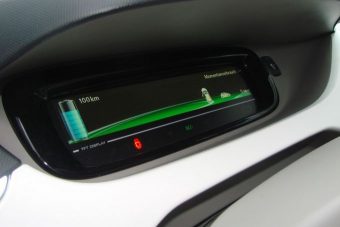
German newspaper Handelsblattr is reporting that a meeting between German Chancellor Angela Merkel and Chinese premier Li Keqiang in Berlin on Thursday led to an important new agreement regarding electric car sales in China.
Last September, the Chinese government proposed a new policy that would require all manufacturers to sell a minimum of 8% “new energy vehicles” — defined as plug-in hybrid, battery electric, or fuel cell powered cars — starting in 2018. The Chinese electric car mandate is very similar to one put in place recently by the California Air Resources Board.
While endorsing the idea behind the policy, virtually every car company argued the time table was too aggressive. Even though sales of the low or zero emissions vehicles are higher than in most other countries, except Norway, they still account for less than 3% of the Chinese new car market. More than doubling that number to 8% in just over one year’s time would require heroic efforts by all parties.
Officials from China and Germany have been holding high level talks on a number of issues this past week, spurred by concerns that the United States has now become a rogue nation under the leadership of Donald Trump.
Chancellor Merkel stated after the G7 conference last week that Germany and the other nations of the world must chart their own course going forward. She indicated that the US was no longer a reliable financial or political partner. The meeting with Premier Li was the first indication of a new political alignment between the nations of the world.
A statement after the meeting between Merkel and Li said only that the two leaders had found a “solution” to the problem but provided few details. Dieter Zetsche, CEO of Daimler, the parent company of Mercedes Benz, told Reuters, “What we talked about was the timeline, the pace of this transition. I think we reached a result which is satisfactory for everybody.”
Reports indicate the Chinese have agreed to roll back the target date for their new policy one year to 2019 and will allow German car companies who fail to comply initially to avoid any penalties if they increase sales of new energy vehicles later.
German automakers are strongly committed to vehicle sales in China, which now has the largest new car market in the world. At present, China requires all manufacturers who wish to build products in China to partner with a domestic company, a provision that means there is a significant transfer of technology to the domestic partners. It is believed the new understanding includes provisions that will limit how much technology transfer is required.
Source: cleantechnica.com



